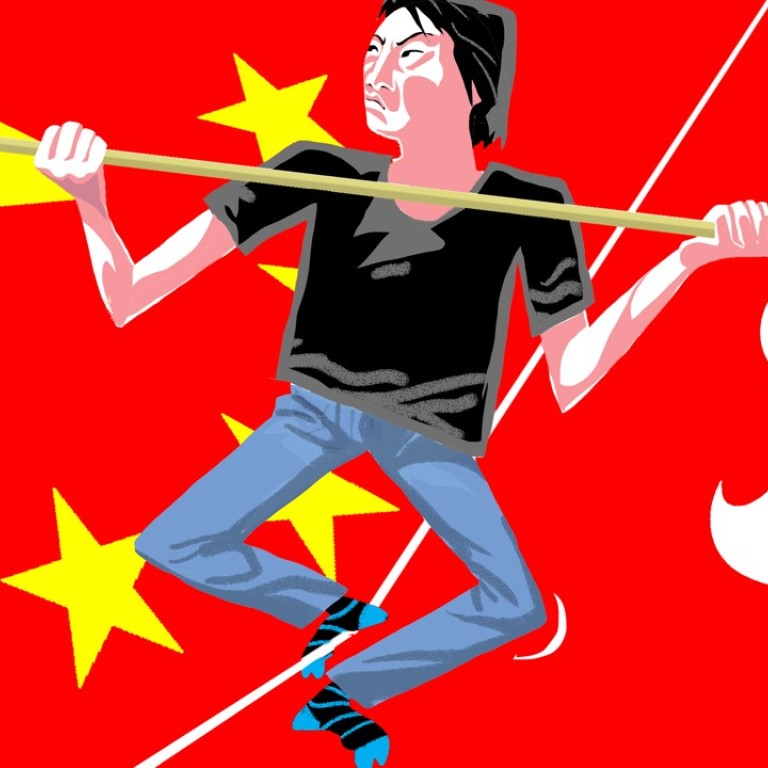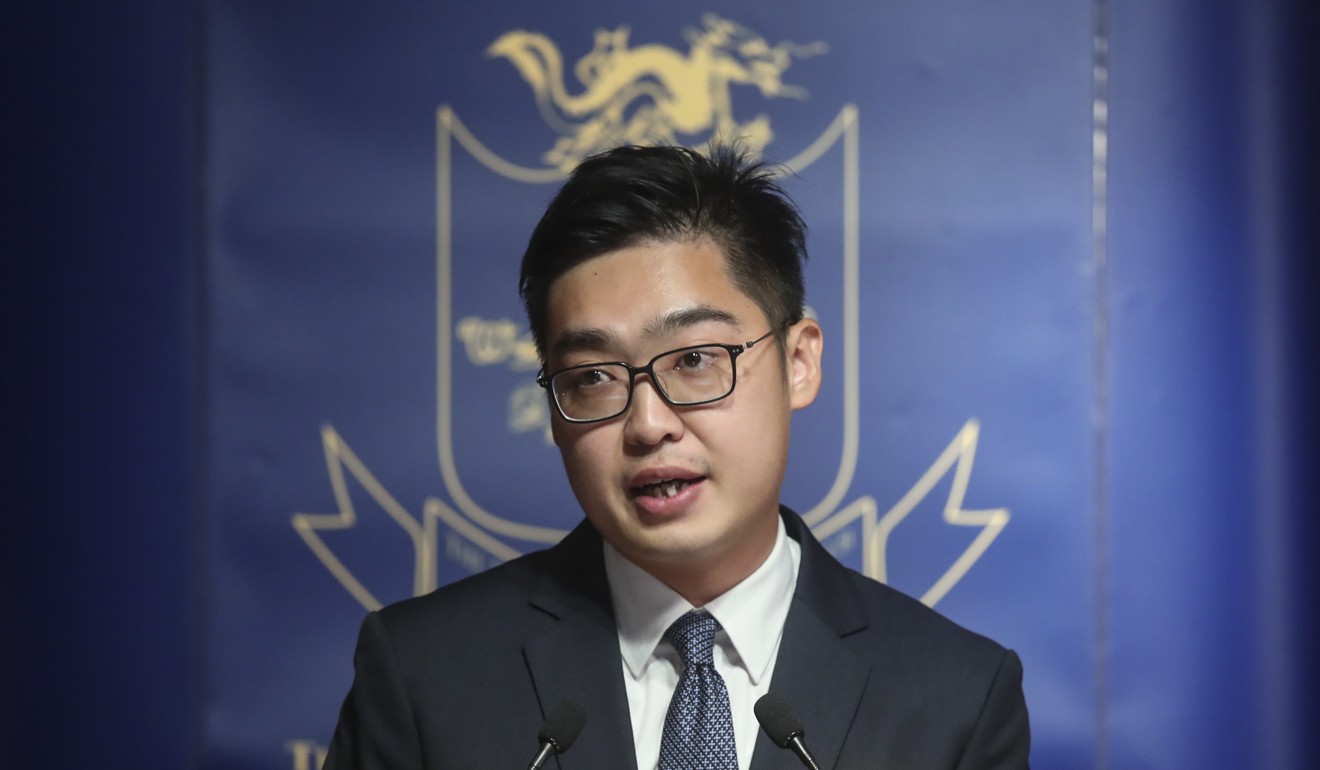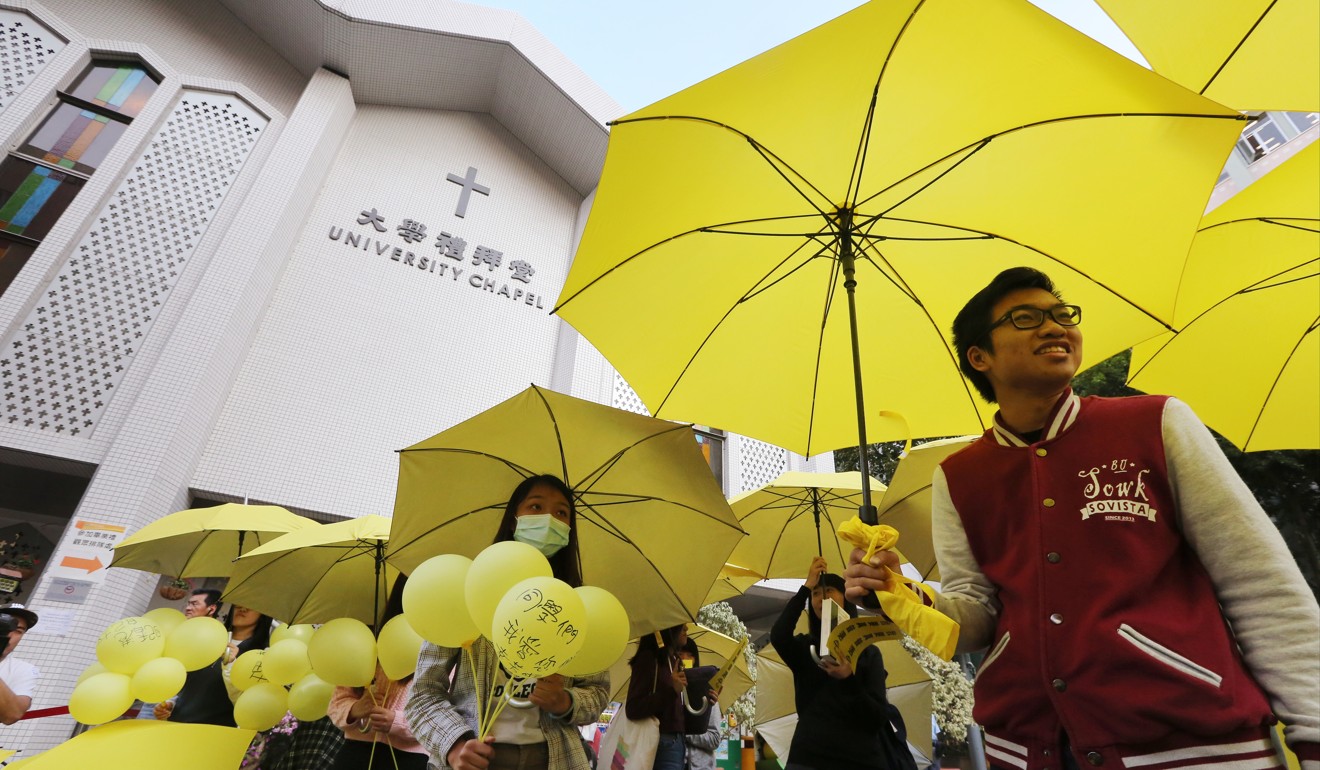
If Hong Kong encroaches on ‘one country’, don’t cry when China erodes ‘two systems’
Philip Yeung says free speech in Hong Kong universities must have limits, if the city is to maintain the delicate balance of ‘one country, two systems’. It is one thing to have students fighting for universal suffrage, quite another for them to advocate separation
But opposing it and banning talk of it are not the same thing. The head of Chinese University, for example, says that as long as the topic is discussed rationally and nonviolently, it is permissible, to which independence activists reply that they are in full compliance. The government wants to set a third condition: the activity in question must not breach Hong Kong law. Its argument is compelling. For, how do you defend something that is illegal?
Barely into the first week of the school year, student leaders of three local universities have used the inauguration ceremony to spout off about being in favour of an independent Hong Kong. Like a spreading virus, they are sure to be followed by their peers in other universities.
But what is there to discuss? The topic is dead on arrival. Illegality aside, it is sheer insanity. Hong Kong can’t afford self-rule. Without China, it is doomed. Even our water supply comes from the north. Why waste time listening to the dribble of historically ignorant hotheads who are still wet behind the ears?

In other words, this activist and his ilk are products of our failed education system. Instead of teaching them history, it fed them a wishy-washy subject called Liberal Studies that is supposed to be conducive to critical thinking. Students are critical all right, but only in a knee-jerk fashion.
In an alarming survey, 60 per cent of the under-30 demographic polled supported Taiwan independence. In this year’s DSE examinations, just over 10 per cent of the candidates took Chinese history, a subject that ought to have been mandatory. As a discipline, history is on life support in high schools and universities.

Tony Chan, his Hong Kong University of Science and Technology counterpart, dared not stir up the hornet’s nest and decided to be cute, calling such disruptive behaviour “creative”. For that, he was ridiculed as spineless. These are not good times to be university presidents. They have to walk a tightrope between tolerating disruptive student dissent and protecting free speech. Most tend to handle rebellious students gingerly.
Once “Hong Kong independence” reared its ugly head, however, it put a different complexion on the matter. Fighting for universal suffrage is one thing, advocating separation is quite another. The former falls under “two systems”, but the latter is a dagger thrust at “one country”.
There is a delicate balance to be kept on this interactive principle, where more of one means less of the other. If you respect “one country”, you get more room under “two systems”. If you keep testing the limits of “one country”, then you can expect a tightening of “two systems”. To borrow a cliché, you can’t have your cake and eat it.
Remember that, though it irks Beijing, Hongkongers are still free to stage street protests over human rights issues. That’s nothing to be sneezed at, considering that we are now part of China. Would Britain, for all its vaunted respect for political rights, have tolerated open revolt for Hong Kong independence and hostility towards the sovereign during its rule? I think not.
Universities should starve them of the oxygen of publicity and deny them venues for poisoning the minds of their peers. They should be shunned like outcasts who are on the wrong side of the law.
Would the Foreign Correspondents’ Club, for all its high-mindedness, have invited members of the Ku Klux Klan to speak? Free speech implies the exchange of considered views of informed minds. Why give empty-headed loudmouths a megaphone to spout an idea that has no life?
Should independence-related talk be taboo on campus? Well, not quite. I see value in public debate about the causation of local separatism, with sky-high rents and low wages crushing the dreams of the young. Beyond condemning their waywardness, we must understand it. To me, their rebellion smells like an impotent rage against a rat race they cannot win. Maybe it is not independence they want. It is hope they need.
Philip Yeung is a ghostwriter to university presidents and civic leaders. [email protected]

